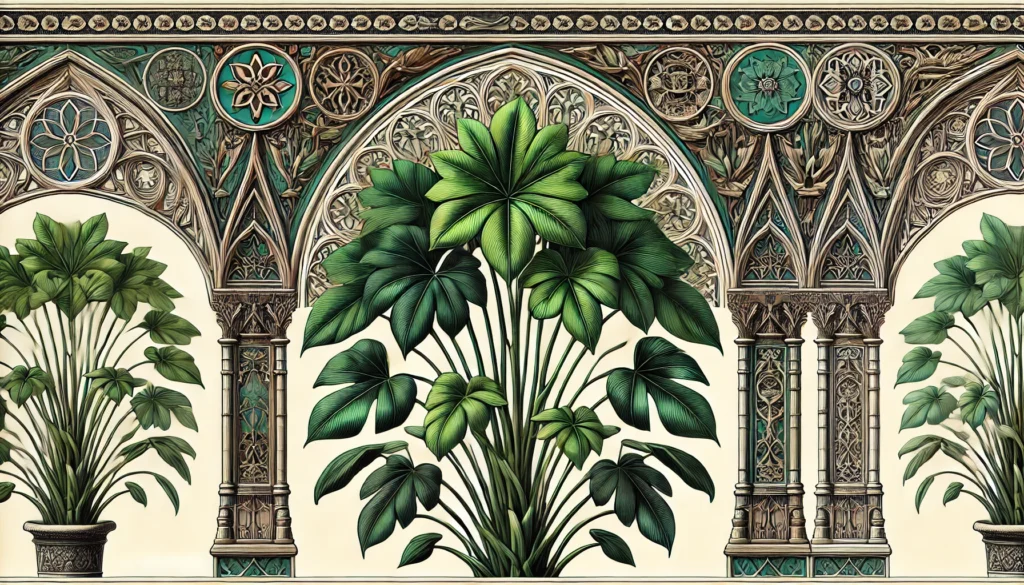

Home » Cat Plants » The Toxic Dangers of the Schefflera Plant to Cats

The Schefflera plant, also known as the Umbrella Tree, Australian Ivy Palm, Octopus Tree, or Starleaf, is a popular houseplant that can pose a significant threat to cats if ingested.
This plant is toxic to cats and can cause a range of unpleasant symptoms. Schefflera plants are commonly found in homes and offices as decorative indoor plants.
Ingestion may cause mild gastrointestinal upset, but is generally not life-threatening.
Ingestion can result in mild symptoms like vomiting, diarrhea, or drooling. Rarely fatal but may require veterinary care.
Eating these plants can lead to more pronounced symptoms like abdominal pain, lethargy, or difficulty breathing. Veterinary intervention may be necessary.
Ingesting even small amounts can cause severe symptoms like organ damage, seizures, or cardiac failure without rapid treatment.
All parts of these plants are extremely poisonous to cats and can quickly lead to death, even with immediate veterinary care.
** Please note: Please note that toxicity level can vary based on the amount ingested and the specific cat. It's always best to keep these plants completely inaccessible to cats and seek immediate veterinary care or call the poison hotline if you suspect your cat has ingested any part of a toxic plant.
If a cat ingests any part of a Schefflera plant, they may experience a range of symptoms due to the presence of calcium oxalate crystals. These crystals can cause intense burning and irritation in the mouth, lips, and tongue. Other symptoms may include:
If you suspect your cat has ingested a Schefflera plant, it is crucial to seek veterinary care promptly. Your veterinarian will likely follow these steps to diagnose and treat your cat:

A: Yes, the Schefflera plant is harmful to cats. It contains insoluble calcium oxalate crystals that can cause severe oral irritation, drooling, and difficulty swallowing if ingested.
A: Symptoms of Schefflera poisoning in cats include vomiting, pawing at the mouth, and swelling of the tongue and lips. If your cat shows these signs, seek veterinary care immediately.
A: The Schefflera plant is moderately toxic to pets, especially cats and dogs. Ingestion can lead to significant discomfort and may require prompt medical intervention to alleviate symptoms.
A: Cats can recover from Schefflera poisoning with timely veterinary care. Early treatment is crucial to manage symptoms and ensure a smooth recovery.
A: It is not safe to keep a Schefflera plant in a house with cats due to its toxic properties. Consider non-toxic alternatives like bamboo or Boston ferns to keep your cat safe.
A: If your cat ingests the Schefflera plant, contact your veterinarian immediately. Quick action is necessary to manage symptoms and prevent further health complications.
The Schefflera plant is native to New Zealand and some Pacific islands. It was named after Johann Peter Ernst von Scheffler, a physician and botanist from Gdańsk, Poland. The genus has undergone numerous taxonomic changes, with many species being reassigned to other genera. Currently, there are 13 accepted species of Schefflera.
Please note: The information shared in this post is for informational purposes only and should not be considered as veterinary medical advice.
🐾 A hilarious or heart-melting cat video
🐾 Our latest paws-on review of a cool cat toy